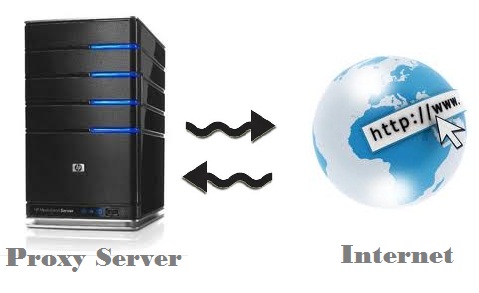During today's digital age, the internet can often feel like a wild west where dangers lurk around each corner. Whether it's identity theft, data breaches, or unwanted surveillance, safeguarding our online presence has never been more vital. One effective tool in navigating this risky landscape is the proxy server. With their ability to act as intermediaries between users and the internet, proxy servers offer a significant layer of privacy, security, and anonymity that can substantially enhance our browsing experience.
As technology evolves, so do methods we use to protect ourselves online. Proxy servers serve a variety of purposes, from bypassing geographical restrictions on content to offering an added barrier against potential cyber threats. Understanding what a proxy server is and how it functions can empower users to make wise decisions about their online activities. In this article, we will explore the importance of proxy servers, their diverse types, the advantages they offer for privacy and security, and how they can be employed effectively in both personal and professional contexts.
Grasping Proxy Servers for Networking
A proxy server acts as an mediator between a user's device and the world wide web. When you link to a middleman server, your demands for services are transmitted through the intermediary instead of straight to the target server. This implies that the middleman fetches the data for you, which then enables for multiple capabilities such as privacy, security, and filtering content.
One of the key functions of a middleman is to provide a level of protection for your digital activities. By masking your IP address, it makes it more complex for sites and potential hackers to track your internet activity. This added layer of obscurity helps protect your identity, making it a valuable tool for those focused about privacy in an ever more interconnected digital world.
Additionally, these middlemen can boost the general user interaction by enhancing connection speeds and permitting access to geo-restricted content. Diverse types of proxies, such as HTTP, Socket Secure, and see-through proxies, cater to diverse needs, offering adaptability for users to pick the most fitting option based on their particular requirements, whether for personal browsing or corporate purposes.
Benefits and Risks of Proxy Usage

Employing a proxy server delivers a multitude of benefits, especially in enhancing online privacy and security. By serving as an intermediary between the user and the internet, proxies can conceal the user's real IP address, rendering it harder for websites and malicious actors to track online activities. This anonymity can be vital for individuals wanting to protect personal information or for businesses that strive to ensure their operations are guarded from potential cyber threats. Additionally, proxy servers can help users access geo-restricted content, allowing for a more extensive browsing experience.
However, there are significant risks connected with using proxy servers, notably free ones. Free proxies may not have adequate security measures in place, leaving users to data breaches and malware. Furthermore, many free services log user activities, potentially compromising privacy rather than improving it. It's important to scrutinize the reputation and trustworthiness of a proxy service to mitigate these risks. Neglecting to do so could lead to exposing https://buyproxy.omeka.net/ to third parties.
In the context of business operations, while proxy servers can significantly enhance cybersecurity and productivity, organizations must balance these advantages against the potential for misconfiguration or inadequate protection. A badly managed proxy can lead to security vulnerabilities, potentially exposing the company to harmful attacks. As with any technological solution, it is vital to choose reputable proxy services and to implement best practices for security.
Proxy Solutions in Various Applications
Companies often rely on proxies as essential instruments for enhancing cybersecurity. By routing internet traffic through a proxy server, organizations can supervise and sift through outgoing and incoming data. This enables them to block malicious websites, avert data breaches, and ensure compliance with business regulations. Additionally, proxies can provide anonymity for staff, making it harder for outside entities to monitor their online activities, thus enhancing the overall security of the organization.
In online gaming, proxy solutions are used to minimize lag and enhance connection stability. Video game enthusiasts often encounter problems like elevated response times and connection disruptions, which can significantly affect gameplay. By using a proxy server specifically designed for online play, users can experience a more stable experience, dodge regional blocks, and even enhance their chances of not getting suspended for IP misuses. This ensures a smoother gaming experience and improved reach to game servers worldwide.
Proxies play a vital role in data extraction and data collection for business analysis. Marketers and marketers use proxies to gather data from websites without raising alarms or getting blocked. Different types of proxies, such as private and data center proxies, enable users to obtain information effectively while keeping anonymous. By using proxies, organizations can remain competitive of competitors, glean insights from market trends, and adapt their strategies as needed without facing the risks associated with unauthorized data collection attempts.
